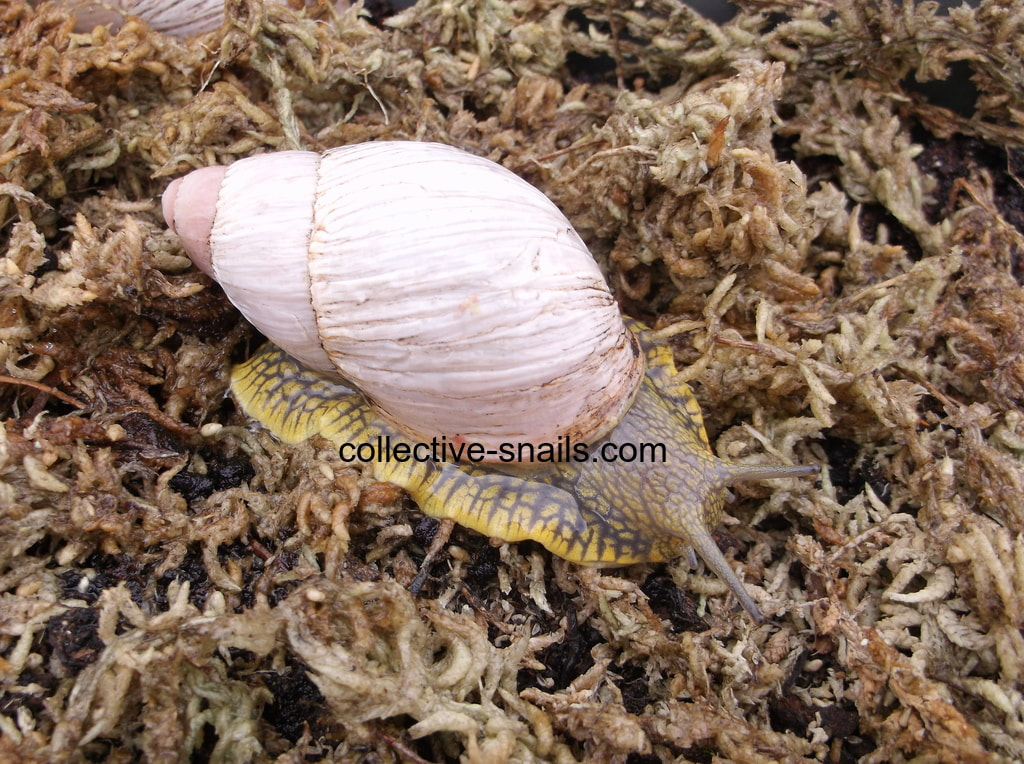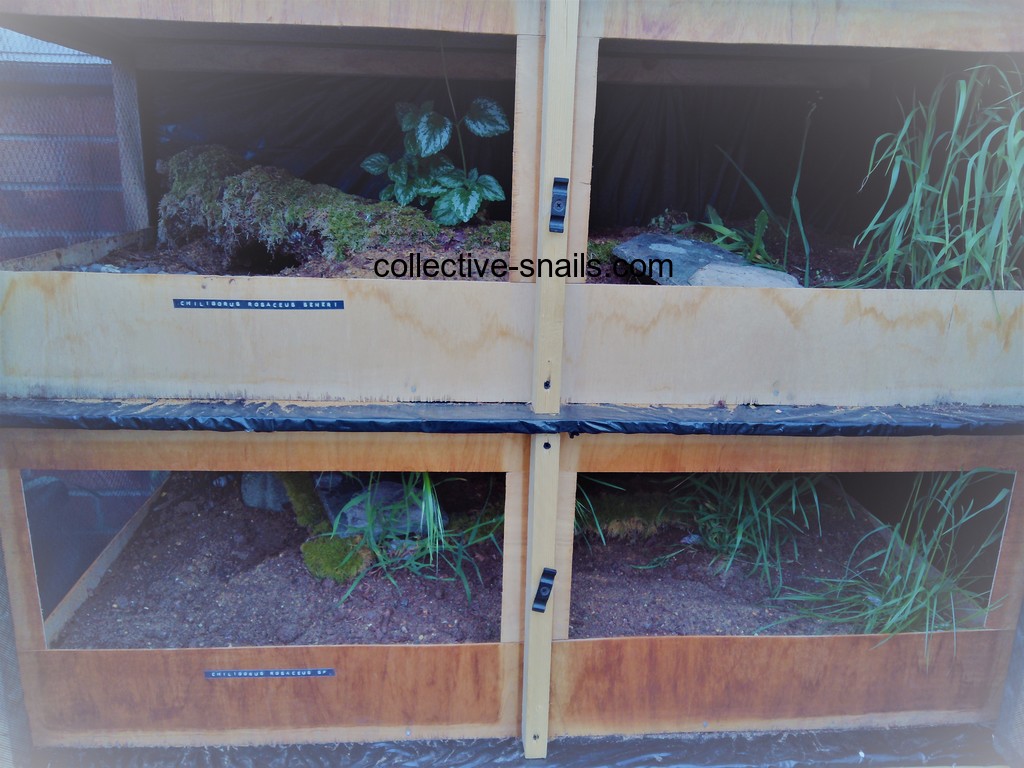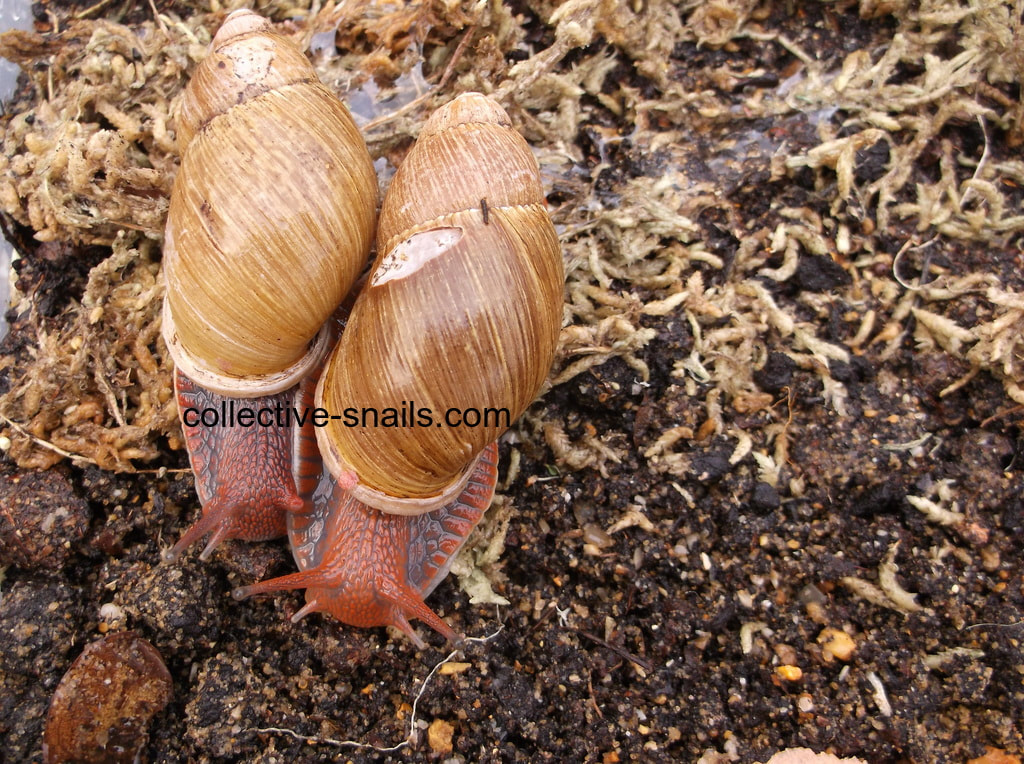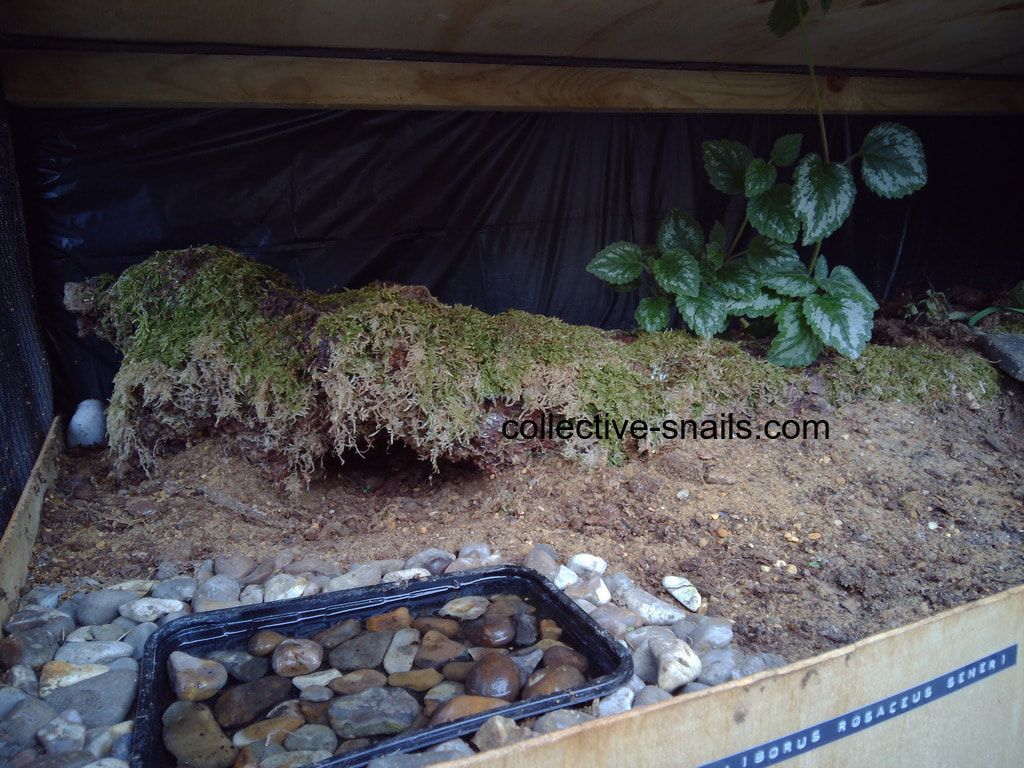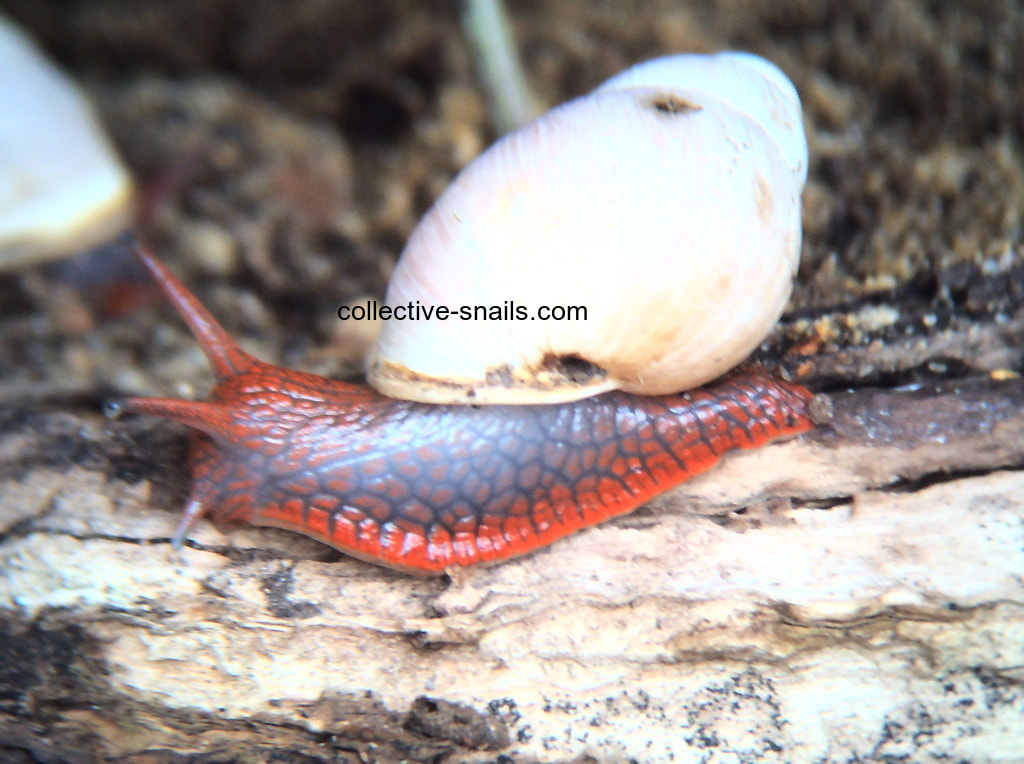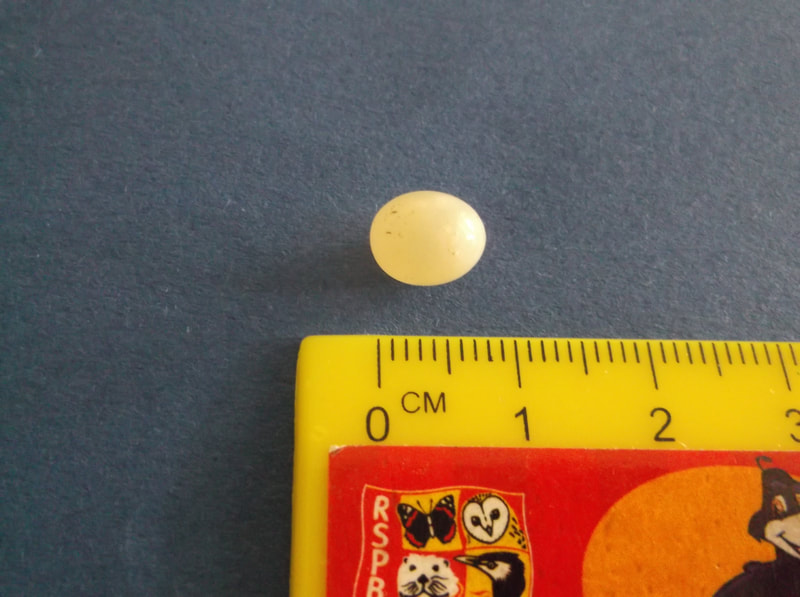Snail Research
Some of the species we keep can be pretty much unknown and some of them are native to the U.K & rather 'common'
either way, there is a lot of information needed on a lot of snail species and how we can help them cope with changes in the environment & habitat so that they can be preserved for the future, because sadly our own countryside is changing just as it is in many other countries.
From tropical rainforests to dry sandy deserts, it can take time to get the correct heat & humidity for each species
and to find a nutritious substitute for the original feed that they had in the wild.
That however is not the end of our work.
Each snail needs to be happy & healthy to be able to breed & continue it's species
- sometimes it can take 2 months or even 2 years for a wild caught snail to adapt & be ready to breed, then once we have
our very first few special clutches of eggs we have to ensure the correct conditions for them to hatch
and be able to successfully raise the babies to adulthood.
Once we have successfully raised 2 or 3 clutches of babies to adulthood in their preferred environment
we then slightly alter the humidity and temperature for some of them on a regular basis to see how much of a change of habitat
each species can tolerate - this information is extremely useful in finding alternate locations for a species in decline.
Unfortunately we are not always successful in raising a species, and some snails will die before they adapt, this is part of life
- they also die in the wild too, due to predators, natural events and last but certainly not least... humans & 'progress'
With continued research & study, more of the lesser known snails will be able to survive happily in captivity
which could one day make a difference in the survival or the extinction of a species.
either way, there is a lot of information needed on a lot of snail species and how we can help them cope with changes in the environment & habitat so that they can be preserved for the future, because sadly our own countryside is changing just as it is in many other countries.
From tropical rainforests to dry sandy deserts, it can take time to get the correct heat & humidity for each species
and to find a nutritious substitute for the original feed that they had in the wild.
That however is not the end of our work.
Each snail needs to be happy & healthy to be able to breed & continue it's species
- sometimes it can take 2 months or even 2 years for a wild caught snail to adapt & be ready to breed, then once we have
our very first few special clutches of eggs we have to ensure the correct conditions for them to hatch
and be able to successfully raise the babies to adulthood.
Once we have successfully raised 2 or 3 clutches of babies to adulthood in their preferred environment
we then slightly alter the humidity and temperature for some of them on a regular basis to see how much of a change of habitat
each species can tolerate - this information is extremely useful in finding alternate locations for a species in decline.
Unfortunately we are not always successful in raising a species, and some snails will die before they adapt, this is part of life
- they also die in the wild too, due to predators, natural events and last but certainly not least... humans & 'progress'
With continued research & study, more of the lesser known snails will be able to survive happily in captivity
which could one day make a difference in the survival or the extinction of a species.
Chiliborus
Various Species
2014 - present day
Various Species
2014 - present day
The beautiful Chiliborus have been very challenging to keep over the years
(I think we've had them for around 8 years now & some of them are still alive & well)
They do not like to be raised as most snails species and we have been very lucky to have had some eggs laid.
The eggs can take anything from 2 - 10 months to hatch and will need the exact conditions for any young to thrive.
(I think we've had them for around 8 years now & some of them are still alive & well)
They do not like to be raised as most snails species and we have been very lucky to have had some eggs laid.
The eggs can take anything from 2 - 10 months to hatch and will need the exact conditions for any young to thrive.
More information from 5 years of our study results can be found on our Chiliborus Research page.
Please Note:
I do not sell any of our research species so please do not ask!
If we are successful in raising any of our research species, I send half of the babies back to the person that collected them for me in their native country, so that they can be released and carefully monitored by local snail enthusiasts.
Our current research species...
We are currently studying a few different snail species & will be uploading more details here soon!
